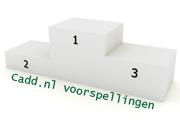Welkom in de shoutbox, gast
Tag: bank
BLEISWIJK-1
Bolskie schreef:
Breedte leuk. Maar voor de breedte heb je al spelers onder contract dan moet je van contracten af. Bijen, kishna, goosens , Janmaat.
Breedte leuk. Maar voor de breedte heb je al spelers onder contract dan moet je van contracten af. Bijen, kishna, goosens , Janmaat.
Volgens mij is Steyn de enige die je echt moet verlengen. De rest van de talenten, ligt, bij sommige met optiejaar, tot 2023 vast.
Bij Steyn is dit onduidelijk.
Ik ben het wel eens dat de breedte van de selectie iets beter moet. Rottier, Komljenovic, Reemst en v. Mil horen niet op de bank. Maar bij jong ADO te ballen. Zijn nog niet goed genoeg.
Bij Steyn is dit onduidelijk.
Ik ben het wel eens dat de breedte van de selectie iets beter moet. Rottier, Komljenovic, Reemst en v. Mil horen niet op de bank. Maar bij jong ADO te ballen. Zijn nog niet goed genoeg.
 0 0
|
Vrijdag 13 augustus 2021 om 22:52 uur |
Langebach2
jajoh schreef:
hahahaha, zal Brood blij mee zijn dat Steijn voor de camera stond. "ja, we spelen voor promotie..." heerlijk, gewoon zeggen waar t op staat ipv die politiek correcte antwoorden. We zien vanzelf wel waar het eindigt!
hahahaha, zal Brood blij mee zijn dat Steijn voor de camera stond. "ja, we spelen voor promotie..." heerlijk, gewoon zeggen waar t op staat ipv die politiek correcte antwoorden. We zien vanzelf wel waar het eindigt!
Als je met 12, 13 spelers het hele seizoen uit de voeten kan, dan zou het realistisch zijn.
Maar helaas is de bank nog te zwak. Top 6 moet haalbaar kunnen zijn en meedoen voor playoffs.
Maar helaas is de bank nog te zwak. Top 6 moet haalbaar kunnen zijn en meedoen voor playoffs.
 0 0
|
Vrijdag 13 augustus 2021 om 22:47 uur |
Langebach2
BigMac schreef:
Heel blij, 2 gespeeld, 2 gewonnen! Denk dat volendam meer kwaliteit heeft en dat maakt deze overwinning des te lekkerder. Koopmans blijft een matige keeper zeg, maar de kkd is denk ik wel zijn niveau. Ons team is goed genoeg om in het linkerrijtje mee te doen, maar de wisselspelers zijn echt wel een niveautje lager. Hopelijk wordt de overname snel afgerond en kunnen er nog een paar spelers bijkomen.
Hoe dan ook: ik heb genoten

Heel blij, 2 gespeeld, 2 gewonnen! Denk dat volendam meer kwaliteit heeft en dat maakt deze overwinning des te lekkerder. Koopmans blijft een matige keeper zeg, maar de kkd is denk ik wel zijn niveau. Ons team is goed genoeg om in het linkerrijtje mee te doen, maar de wisselspelers zijn echt wel een niveautje lager. Hopelijk wordt de overname snel afgerond en kunnen er nog een paar spelers bijkomen.
Hoe dan ook: ik heb genoten


Basis inderdaad prima. Maar de bank is nog niet best inderdaad.
Na overname nog een paar gasten voor de breedte halen.
Van Kleef, Botermans, Van Moorsel, Heerings.
Na overname nog een paar gasten voor de breedte halen.
Van Kleef, Botermans, Van Moorsel, Heerings.
 0 0
|
Vrijdag 13 augustus 2021 om 22:16 uur |
wijstaanboven
Ik ben niet zo onder de indruk van het team van Volendam. Voornamelijk jonkies zonder enige ervaring, zo stond er een 17 jarige basis vorige week op het middenveld. Vd ven en Muhren zijn de steunpilaren maar vd ven zat vorige week ook al op de bank die is in afwachting van zijn transfer. Denk dat de gemiddelde leeftijd bij ons zelfs hoger ligt. Ik verwacht gewoon 3 punten!
 0 0
|
Vrijdag 13 augustus 2021 om 11:19 uur |
BLEISWIJK-1
Eeuwig Den Haag schreef:
Severina maat, daar moet je je hoop op vestigen. Veel beter dan Boussakou en Rottier.
Severina maat, daar moet je je hoop op vestigen. Veel beter dan Boussakou en Rottier.
Severina is een groot talent. En zie ik als volwaardig A selectie lid. Net als Besuijen, Catic en Verheydt voorin.
Daarom dat ik Rottier en Boussakou noemde. Deze zijn nog niet zo ver. Maar als die ook stappen maken. Dan hebben we ook nog wat op de bank.
Van Mil is er nog niet klaar voor. En met Kishna hou ik geen rekening meer.
Daarom dat ik Rottier en Boussakou noemde. Deze zijn nog niet zo ver. Maar als die ook stappen maken. Dan hebben we ook nog wat op de bank.
Van Mil is er nog niet klaar voor. En met Kishna hou ik geen rekening meer.
 0 0
|
Donderdag 12 augustus 2021 om 14:10 uur |
BLEISWIJK-1
Madmax schreef:
Een nieuwe eigenaar en 4 tot 6 goede spelers?? ...ik verwacht het niet
Een nieuwe eigenaar en 4 tot 6 goede spelers?? ...ik verwacht het niet
We hebben toch goede spelers? Ook al is er straks geld. Ik zou heel voorzichtig zijn met zomaar spelers er bij halen. Deze enthousiaste groep zit goed in elkaar.
Alleen de breedte van de bank is een probleem.
Alleen de breedte van de bank is een probleem.
 0 0
|
Maandag 9 augustus 2021 om 22:47 uur |
Advertentie
BLEISWIJK-1
Rob2002 schreef:
Deze overwinning geeft weer een beetje hoop. Er werd bij vlagen leuk gecombineerd en ook lekker gebikkeld.
Nadat Asante eruit ging werd het minder en kreeg het tegenvallende Jong team ook nog wat kansen.
Gelukkig hebben we eindelijk weer een spits met uitstalling die ons in veilige haven schoot.
In ieder geval 3 punten en hoe het gevierd werd biedt hoop voor de toekomst. Wie weet zie een potentieel nieuwe eigenaar dit ook maar ik verwacht dat die soap nog wel even duurt.
Deze overwinning geeft weer een beetje hoop. Er werd bij vlagen leuk gecombineerd en ook lekker gebikkeld.
Nadat Asante eruit ging werd het minder en kreeg het tegenvallende Jong team ook nog wat kansen.
Gelukkig hebben we eindelijk weer een spits met uitstalling die ons in veilige haven schoot.
In ieder geval 3 punten en hoe het gevierd werd biedt hoop voor de toekomst. Wie weet zie een potentieel nieuwe eigenaar dit ook maar ik verwacht dat die soap nog wel even duurt.
Ik denk dat partij Jol op deze voet doorgaat. Jonge gasten met op enkele plaatsen Nederlandse ervaren spelers.
De breedte van de bank is wel een zorg. Een jongen als v. Mil, maar ook een Kromljenovic, moeten eerst wedstrijden in jong ADO gaan spelen.
De breedte van de bank is wel een zorg. Een jongen als v. Mil, maar ook een Kromljenovic, moeten eerst wedstrijden in jong ADO gaan spelen.
 0 0
|
Zondag 8 augustus 2021 om 15:55 uur |
rd..
Op mij komt dat stukje RTV West-proza over als een beetje druk zetten op het proces. Ze laten tig betaaltermijnen verlopen, dat biedt echt vertrouwen voor de toekomst zeg. Als Reiziger dan het beste voor heeft met de hut, dan gaat hij niet verder met weer zo`n partij die de `verzenden`-knop in de bank app niet kan vinden. Zeker niet als een echt Haagse partij en `uitermate prima` voorstel doet. Los van welke partij het beste is voor de club.
Het verhaal is het verhaal wat Hans Kraaij Jr. afgelopen zondag blijkbaar al wist. Toch?
Het verhaal is het verhaal wat Hans Kraaij Jr. afgelopen zondag blijkbaar al wist. Toch?
 0 0
|
Vrijdag 6 augustus 2021 om 23:36 uur |
Tommy
ghostdrift schreef:
volgens Quick Boys een hele goede speler maar ADO stuurt hem weer weg onder het mom voorlopig vind ik een vreemde situatie
volgens Quick Boys een hele goede speler maar ADO stuurt hem weer weg onder het mom voorlopig vind ik een vreemde situatie
Hij kan beter bij qb spelen dan bij ado op de bank zitten. Hij was te oud voor jong ado (22)
En onze jonge mulder is gewoon waardig.
Zolang er een dure meiers speelt is linksachter vol.
En onze jonge mulder is gewoon waardig.
Zolang er een dure meiers speelt is linksachter vol.
 0 0
|
Zaterdag 17 juli 2021 om 09:32 uur |
Nu online
Aad, BLEISWIJK-1, Tante Wil, Lellow, Tuurke63, MichelAdamsMatje, Law en 143 gasten.
Zoek in shoutbox
Spelersklassement
Laatste wedstrijd
Volgende wedstrijd
Advertentie
Keuken Kampioen Divisie
| 1 | Volendam * | 35 | - | 76 |
| 2 | Excelsior | 35 | - | 68 |
| 3 | ADO D.H. + | 35 | - | 66 |
| 4 | FC Dordrecht | 35 | - | 62 |
| 5 | SC Cambuur | 35 | - | 62 |
| 6 | Graafschap | 35 | - | 59 |
| 7 | Telstar | 35 | - | 55 |
| 8 | FC Emmen | 35 | - | 53 |
| 9 | Den Bosch + | 35 | - | 51 |
| 10 | Roda JC | 35 | - | 48 |
| 11 | Helmond Sp. | 35 | - | 46 |
| 12 | Jong AZ | 35 | - | 45 |
| 13 | FC Eindhoven | 35 | - | 45 |
| 14 | VVV-Venlo | 35 | - | 38 |
| 15 | MVV Maastr. | 35 | - | 37 |
| 16 | TOP Oss | 35 | - | 36 |
| 17 | Jong Ajax | 35 | - | 32 |
| 18 | Jong PSV | 35 | - | 27 |
| 19 | Jong Utrecht | 35 | - | 20 |
| 20 | Vitesse -30 | 35 | - | 10 |






